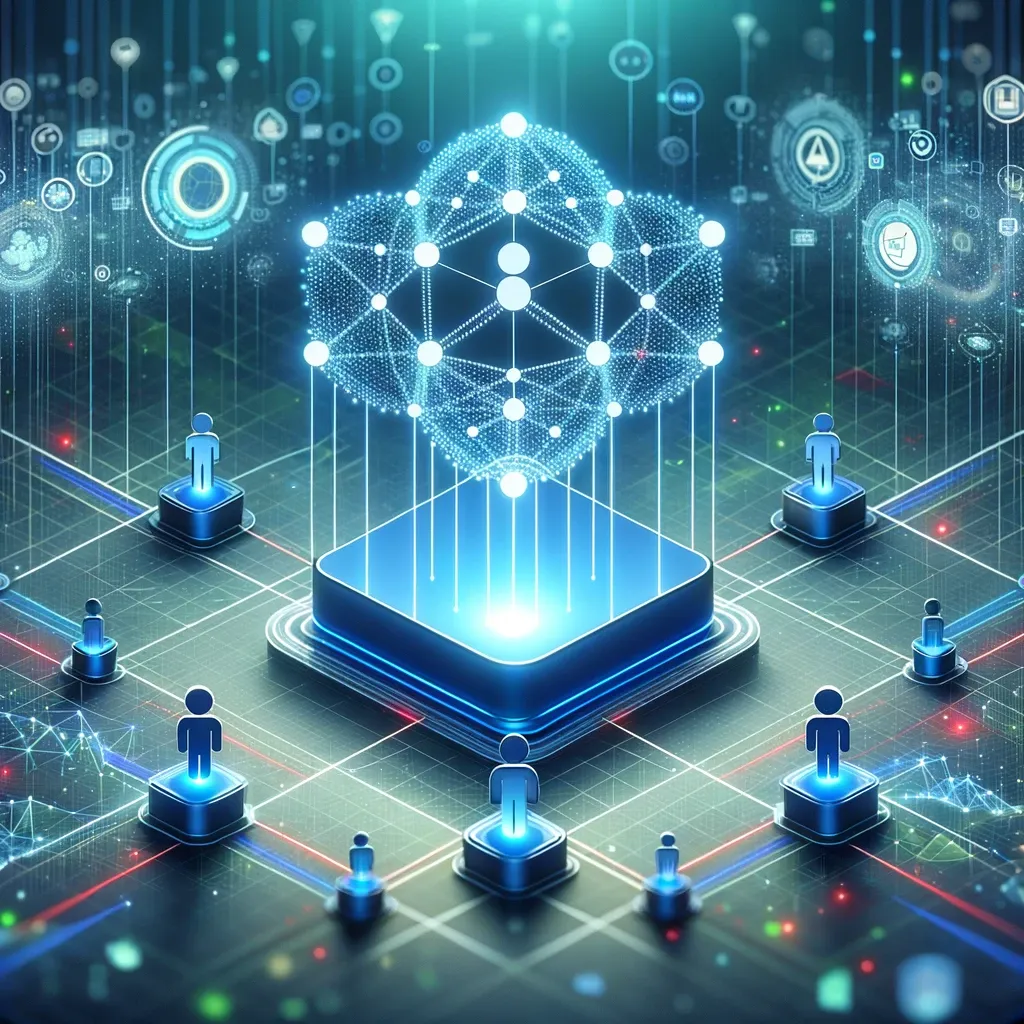Imagine a club where decisions aren't made by one person, but by everyone who is a member. That’s essentially what a Decentralized Autonomous Organization or DAO is. But what does this really mean? How do they function, and what is their impact on the world of cryptocurrencies and blockchain technology? In this article, we’ll break down everything you need to know about DAOs.
What is a DAO?
A DAO is an organization that operates autonomously and is decentralized. Unlike traditional companies, where a single person or a small group makes decisions, in a DAO, every member has a voice and a vote, and decisions are made through consensus. This is achieved through blockchain technology, which provides a transparent and secure framework for managing the organization.
Key Features of DAOs
- Decentralization: There is no central authority. All decisions are made by the members of the DAO.
- Transparency: Rules and transactions are visible to all members, thanks to blockchain technology.
- Autonomy: Once a DAO is created, it functions independently, following the rules programmed into its code.
How Do DAOs Work?
1. Governance through Tokens
DAOs typically use tokens to represent member participation. Token holders can vote on important decisions, such as fund allocation, rule creation, or project selection. The more tokens a member holds, the greater their influence on decisions.
2. Smart Contracts
DAOs operate using smart contracts, which are programs that run on the blockchain. These contracts define the organization’s rules and automatically execute when certain conditions are met. For example, if a majority of members vote in favor of a project, the smart contract can release funds to finance it.
3. Proposals and Voting
Members of the DAO can submit proposals on how to spend funds or what decisions to make. A vote is then conducted. If the proposal receives enough votes in favor, it is automatically implemented.
Impact of DAOs on the Cryptocurrency World
1. Democratization of Decisions
DAOs allow anyone with tokens to participate in decision-making, democratizing the process. This is especially important in the cryptocurrency world, where centralization can lead to biased or unfair decisions.
2. New Investment Opportunities
DAOs can fund innovative projects without relying on traditional investors. This opens the door to new ideas and startups that might not otherwise have access to the necessary capital.
3. Greater Transparency and Trust
Being based on blockchain, DAOs offer a high degree of transparency. Members can see all transactions and decisions, which fosters trust in the process. This contrasts with many traditional organizations, where a lack of transparency can lead to distrust.
Challenges of DAOs
1. Scalability
As more people join a DAO, the number of votes and proposals can become overwhelming. This can hinder quick and effective decision-making.
2. Security Vulnerabilities
Although DAOs are generally secure, smart contracts can have programming errors that can be exploited. This has led to hacks and significant losses in the past.
3. Regulation
The legal framework surrounding DAOs is still developing. This can create uncertainty for investors and participants, who may worry about how DAOs will be treated in the future.
Examples of DAOs
1. MakerDAO
MakerDAO is one of the most well-known DAOs. It allows users to generate a stablecoin called DAI, which is backed by crypto assets. MKR token holders participate in governance and can vote on changes to the protocol.
2. Compound
Compound is a decentralized finance (DeFi) platform that allows users to lend and borrow cryptocurrencies. COMP token holders can vote on the direction of the protocol and participate in decision-making.
3. Gitcoin
Gitcoin is a DAO focused on funding open-source projects. Members can propose and vote on which projects will receive funding, thus promoting software development that benefits the community.
Future of DAOs
1. Growing Popularity
With the increasing adoption of cryptocurrencies and blockchain technology, we are likely to see a rise in the popularity of DAOs. More people are becoming interested in participating in decentralized governance models.
2. Continuous Innovation
DAOs are constantly evolving. As blockchain technology advances, so will the capabilities and functionalities of DAOs. This could lead to new forms of organization and collaboration.
3. Integration with Traditional Projects
In the future, we might see the integration of DAOs with traditional companies. This could allow businesses to adopt more decentralized and participatory governance models.
Conclusion
DAOs represent a radical change in how communities and projects are organized and managed. They offer a governance model that is more democratic, transparent, and autonomous. As blockchain technology continues to develop, we are likely to see growth in the popularity and functionality of DAOs.
So, are you ready to explore the world of DAOs and participate in a new way of organizing? The decentralized revolution is here, and you can be part of it. Learning about DAOs can open many doors in the exciting world of cryptocurrencies!
